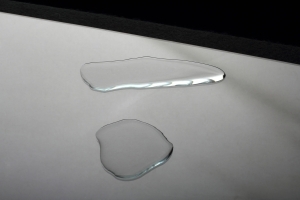When important evidence in a civil injury case has been destroyed, altered or simply lost, this is called “spoliation of evidence.” Because this kind of action can throw off an entire injury case, it might seem defendants in such actions would have incentive to conveniently “lose” key documents, video or other evidence.

In order to counter this, both federal and Florida courts have consistently held that sanctions are appropriate when spoliation of evidence occurs.
The kind of sanctions imposed by the court will vary depending on the egregiousness of the act, whether it was intentional and how important the lost evidence would have been to the other party. Some examples have included entering a default judgment on the issue of liability, imposition of evidentiary presumption, exclusion of expert witness testimony or dismissal of a claim or counterclaim.
So while it may at first seem spoilation of evidence would be very bad for plaintiffs in personal injury claims, our Fort Myers premises liability lawyers know there are many ways to turn a frustrating situation like this into an advantage.
Long believed to be the first Florida case to allow the imposition of sanctions for spoilation of evidence is the 1983 case of DePuy v. Eckes, decided by the Third District Court of Appeal. There, the court affirmed trial court’s decision to strike defendant’s affirmative defenses as a sanction after defendant returned plaintiff’s key piece of physical evidence – a defective hip replacement piece – with an important part missing. Defendant had performed tests on the piece, which plaintiff had not yet had a chance to conduct. Even though the court found the error did not occur in bad faith, the court still determined sanctions were appropriate.
Other states recognize this principle as well. Take for example the recent case of Bilesky v. Shopko, where the Montana Supreme Court found a trial court abused its discretion in failing to uphold sanctions against defendant for lost evidence.
According to court records, plaintiff entered a chain retail store one day in January and suffered a fall. She left the store without reporting what had happened, but she did call to report it to the manager the next day. After speaking with plaintiff, manager reviewed the surveillance video with a worker in charge of loss prevention.
Knowing the footage was only retained for a few weeks before being automatically overwritten, manager instructed loss prevention officer to copy the footage showing plaintiff’s fall onto a DVD so it could be preserved. Employee complied and sent footage to the company’s claims adjuster.
Plaintiff then hired an attorney, who requested the footage from the adjuster. However, it was never received. After months of requests, it was revealed the tape had been accidentally recorded over. Deeper investigation revealed the loss prevention officer had recorded footage from the wrong day and wrong camera.
Plaintiff filed a motion for sanctions against defendant for spoilation of the footage, arguing the destruction unfairly put her at a disadvantage because it would have provided objective evidence of important facts. It would have included proof no maintenance had been done for an extended period of time prior to the fall, show no caution wet floor signs out, reveal carpets saturated with water, show plaintiff’s pants were visibly wet, show the way she fell, show how she needed help getting up, display her altered gait after the fall.
Plaintiff requested either the grant of a default judgment or a negative jury instruction and preclusion of a defense of comparative fault. Defendant argued it was more disadvantaged by loss of video than plaintiff, and that it would concede to most of her assertions the video would have made (though not the most important of those – i.e., the way she fell, lack of caution signs, lack of prior maintenance).
Based on this assertion, plaintiff requested the jury be told defendant would not disagree on those issues. Trial court denied this request, and later allowed defendant to present evidence that would contradict the points it said it would not disagree about.
Upon appeal, plaintiff argued this was an abuse of court discretion – and the state supreme court agreed, reversing that decision and remanding the case for a new trial. Those statements, the state high court found, should have been given as judicial admissions to the jury as part of the sanction for losing key video footage.
Call Associates and Bruce L. Scheiner, Attorneys for the Injured, at 1-800-646-1210.
Additional Resources:
Bilesky v. Shopko, Nov. 14, 2014, Montana Supreme Court
Spoliated Evidence: Better than the Real Thing? July/August 1997, by James T. Sparkman and John W. Reis, Florida Bar Journal
More Blog Entries:
Pedestrian Injury Gives Rise to Premises Liability Lawsuit, Nov. 4, 2014, Fort Myers Slip-and-Fall Injury Lawyer
 Florida Injury Lawyer Blog
Florida Injury Lawyer Blog





